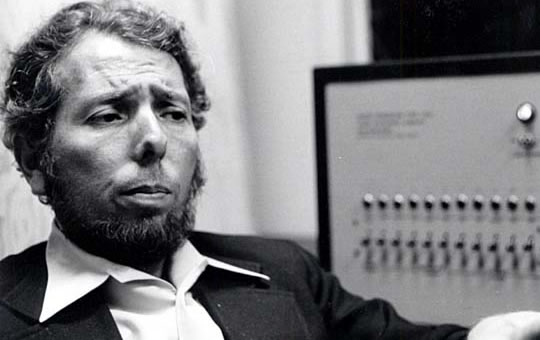

Stanley Milgram
Stanley Milgram (August 15, 1933 – December 20, 1984) was an American social psychologist, best known for his controversial ‘shock’ experiment on obedience (1961), during his professorship at Yale.
Whilst Milgram’s work has secured him a prominent position in the history of Social Psychology, he found himself suspended from the American Psychological Association for a year and denied tenure at Harvard due to ethical concerns about his research.
Milgram was born in 1933 to a Jewish family in New York City, the middle son of Eastern-European immigrants. In 1954, Milgram graduated from Queens College, New York, with a Bachelor’s Degree in political science. Milgram’s application to the Harvard Ph.D in social psychology was initially rejected because he had not previously studied the subject. He was eventually accepted, and received his Ph.D from Harvard in 1960.
After receiving his doctorate, Milgram took the position of Assistant Professor at Yale, where he researched and lectured until 1963, he then returned to Harvard and relocated to New York City in 1967, when he accepted an offer from the City University of New York to become a full Professor.
‘Relatively few people have the resources needed to resist authority.’ Stanley Milgram
Tweet
Milgram was influenced by social psychologists including Solomon Asch and Gordon Allport, and has himself influenced a large number of 20th Century and present-day psychologists.
Milgram’s work on obedience to authority is perhaps his most famous contribution to Psychology. The original 1963 report, ‘Behavioral Study of Obedience’, developed into a book, published in 1974, titled ‘Obedience to Authority’.
His work on obedience won him the AAAS Prize for Behavioral Science Research (1964) and his models were used to explain humanitarian tragedies such as the Holocaust and 1968 My Lai Massacre.
Milgram’s other research interests included the concept of ‘the six degrees of separation’, which developed out of Milgram’s ‘Small World Experiment’ (1967).
Milgram sent several packages to 160 random people living in Omaha, Nebraska, asking them to forward the package to a friend or acquaintance who they thought would bring the package closer to a set final individual, a stockbroker from Boston, Massachusetts. Each “starter” received instructions to mail a folder via the U.S. Post Office to a recipient, but with some rules. Starters could only mail the folder to someone they actually knew personally on a first-name basis. When doing so, each starter instructed their recipient to mail the folder ahead to one of the latter’s first-name acquaintances with the same instructions, with the hope that their acquaintance might by some chance know the target recipient.
Surprisingly, he found that the very first folder reached the target in just four days and took only two intermediate acquaintances. Overall, Milgram reported that chains varied in length from two to ten intermediate acquaintances, with a median of five intermediate acquaintances (i.e. six degrees of separation) between the original sender and the destination recipient.
Milgram’s ‘lost letter’ experiment tested how helpful people are to strangers who are not physically present, and their attitudes towards group identities. Stamped and sealed letters were planted in public places, addressed to various entities, such as individuals, ‘positive’ organisations like medical research institutes, and ‘negative’ organizations such as “Friends of the Nazi Party”. Milgram found that most of the letters addressed to individuals and ‘positive’ organisations were mailed, while most of those addressed to ‘negative’ organisations were not.
Click here to read or download Stanley Milgram’s ‘Obedience To Authority’ for free
